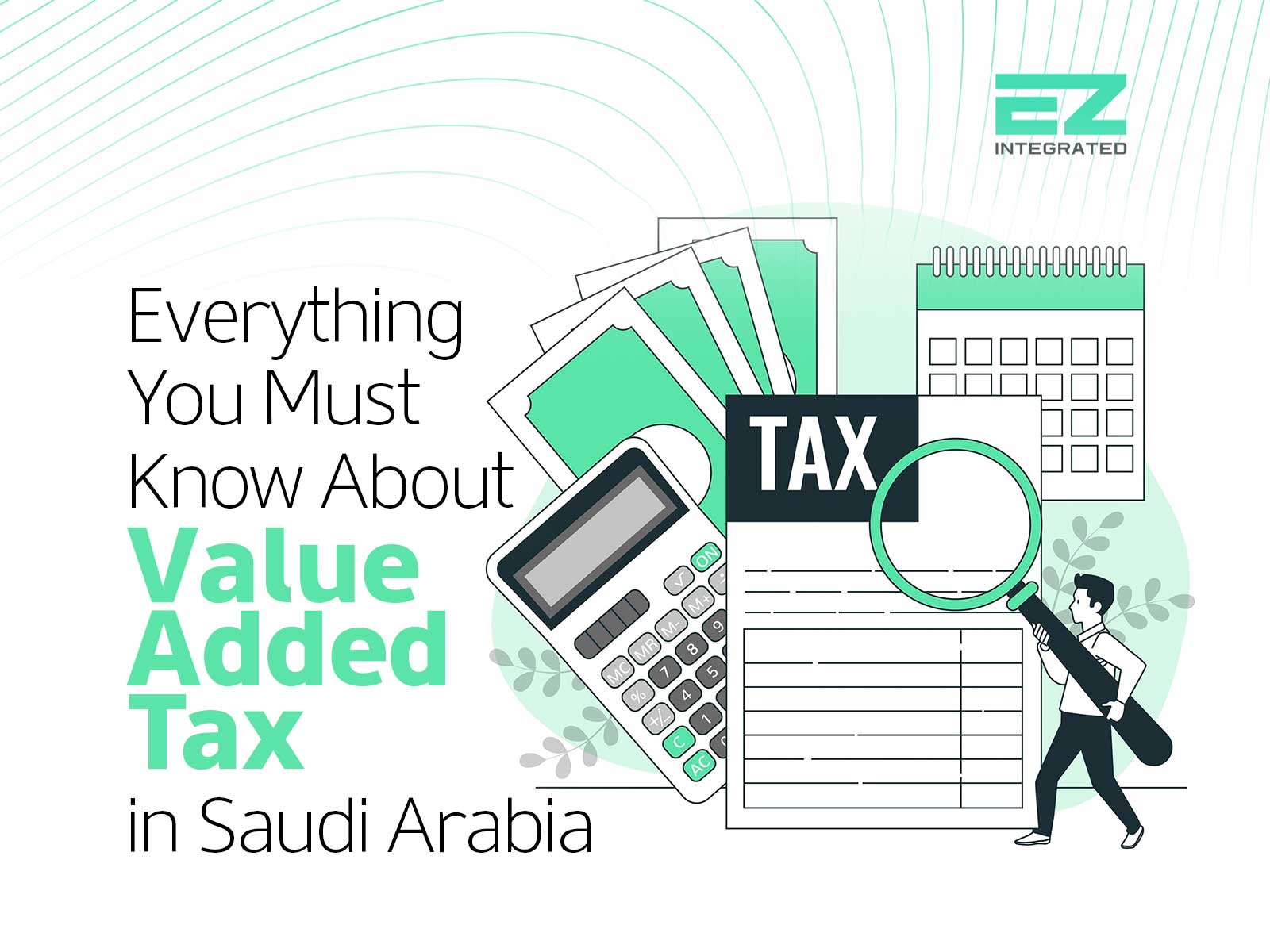Value added tax in Saudi Arabia impacts all business sectors, from traditional companies to online stores. With evolving regulations, e-invoicing is now crucial for full compliance.
What Is Value Added Tax in Saudi Arabia?
Value added tax in Saudi Arabia is an indirect tax applied to the sale and purchase of goods and services. It was introduced at 5% in 2018 and increased to 15% in 2020.
This tax is added to the final price and collected by registered businesses. Later, it’s paid to ZATCA through scheduled tax returns.
Who Must Register for Value Added Tax in Saudi Arabia?
According to ZATCA, any business with annual revenues above SAR 375,000 must register for value added tax in Saudi Arabia.
Businesses earning between SAR 187,500 and SAR 375,000 can register voluntarily. Those earning below SAR 187,500 are exempt.
Also read: E Invoice Requirements: Explained Are You Compliant?
How Is Value Added Tax in Saudi Arabia Connected to E-Invoicing?
With e-invoicing now mandatory, all VAT-registered businesses must issue electronic invoices. This supports transparency and reduces tax evasion.
The process includes two stages:
- Generation Phase: Started on December 4, 2021. E-invoice issuance became mandatory.
- Integration Phase: Gradually enforced since January 1, 2023, requiring businesses to integrate with the “FATOORA” platform.
What Are the Penalties for Violating Value Added Tax in Saudi Arabia Regulations?
Non-compliance with value added tax in Saudi Arabia or e-invoicing rules leads to penalties, including:
- SAR 10,000 for failing to register for VAT.
- 5% to 25% of unpaid VAT for late return submission.
- 1% per month on unpaid VAT.
- Up to SAR 50,000 for e-invoicing violations, such as missing QR codes.
Which VAT Fines Are Covered by the Amnesty Initiative?
ZATCA launched an amnesty initiative waiving several value added tax in Saudi Arabia penalties, including:
- Late VAT registration.
- Late VAT return submissions.
- Delays in VAT payments.
- Mistakes in tax return entries.
Businesses must still pay original VAT due within the amnesty period to benefit.
Which E-Invoicing Fines Are Covered Under the Same Initiative?
The amnesty also covers e-invoicing violations related to value added tax in Saudi Arabia, such as:
- Issuing non-compliant e-invoices.
- Failing to store invoices in the correct format.
- Missing QR codes on simplified invoices.
- Delays in integration with the FATOORA platform.
The initiative allows businesses to fix issues without financial penalties.
Also read: E Invoicing Violations Covered by the Cancellation of Fines Initiative
How Can EZ Integrated Help Your Business Comply with Value Added Tax in Saudi Arabia?
Meeting requirements for value added tax in Saudi Arabia and e-invoicing can be complex. EZ Integrated provides expert solutions that make compliance simple.
We help you:
- Seamlessly integrate with the FATOORA platform.
- Generate ZATCA-compliant e-invoices.
- Use complete accounting systems for taxes and invoices.
- Reduce risk with smart automation and monitoring tools.
- Get expert support tailored to the latest tax updates.
Whether you’re a small business or a large enterprise, value added tax in Saudi Arabia is vital to your operations. Avoid penalties and manage your cash flow efficiently with proper tools.
With EZ Integrated, you stay compliant and enjoy a smooth e-invoicing experience. Book a free consultation today and make sure your business meets every value added tax in Saudi Arabia requirement with confidence!
